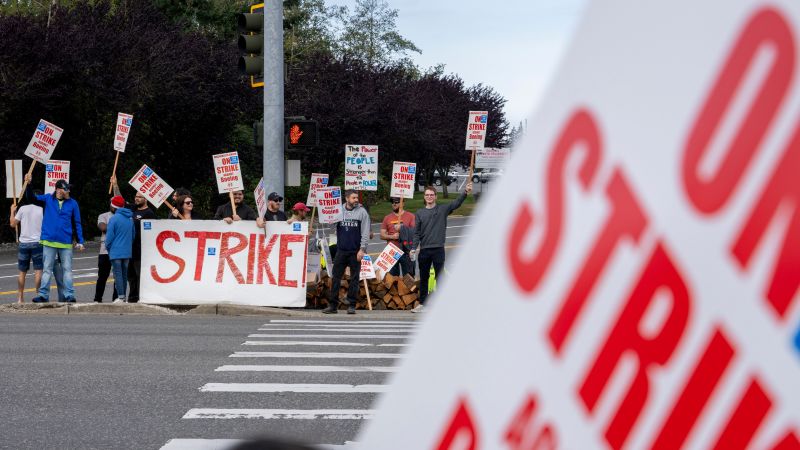The Boeing strike that began on Friday is a result of pent-up frustration among the company’s 33,000 unionized employees. Despite not making a profit in the past year, the CEO received a 45% pay increase, while wages for the workers remained stagnant. This has led to anger among the employees, who are demanding better compensation and job security, especially due to inflation and past concessions made by the union to benefit the company. The strike is seen as an unavoidable outcome of years of mismanagement, economic challenges, and a resurgence of labor movements in the United States.
Boeing’s history of strained relations between management and unions has contributed to the current strike. Previous conflicts between the two parties, including a strike in 2008, were often fueled by animosity coming from management. CEO James McNerney’s controversial comments in 2014 further aggravated tensions with the unionized workforce. The negative history between Boeing and its employees presents a challenge and an opportunity for the company’s new CEO, Kelly Ortberg, who assumed the position just five weeks before the strike. Ortberg is tasked with repairing the damaged relationship with the unionized workers and addressing the grievances that have led to the strike.
Ortberg is facing multiple challenges at the onset of his role, including federal investigations into past incidents, astronauts stranded in space, disgruntled customers, and a decrease in the company’s stock price. Despite these challenges, Ortberg has shown a willingness to engage with workers and acknowledge their frustrations over past contracts and benefits reductions. The rejection of Boeing’s offer by the union, which included a 25% pay increase over four years, highlights the depth of workers’ demands for better compensation, job security, and benefits. Union negotiators described the offer as the best they had ever seen from Boeing, yet members voted overwhelmingly to reject it in favor of demanding more.
The union’s rejection of Boeing’s offer and the decision to go on strike reflects a broader resurgence of power among unions in the United States. Similar to the United Auto Workers union’s historic victories with the Big Three automakers, Boeing workers are leveraging their collective power and pushing back against the company’s demands for concessions. The resentment among Boeing workers stems from previous concessions made by the union during times of financial distress, as well as the company’s decision to transfer production to nonunion plants. This strike represents a stand by the workers to demand fair compensation, job security, and respect for their contributions to the company’s success.
The strike presents an early test for Ortberg’s leadership and his ability to navigate the challenging dynamics between management and the unionized workforce. Despite the difficulties faced by Boeing, there is optimism that the strike can be resolved quickly with Ortberg’s understanding of the issues at stake and his willingness to engage with the workers. The strike is not only about current demands for better compensation but also a reflection of past grievances and the company’s history of strained relations with its employees. As the strike continues, both management and the union will need to work towards finding a resolution that addresses the concerns of the workers and paves the way for a more collaborative and productive relationship in the future.













